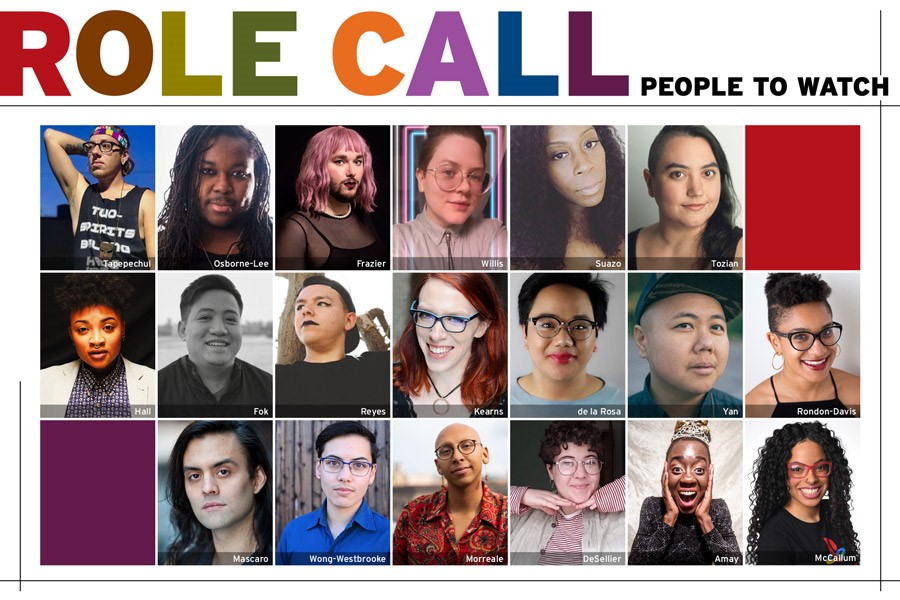Ahanu Tapepechul (they/them)
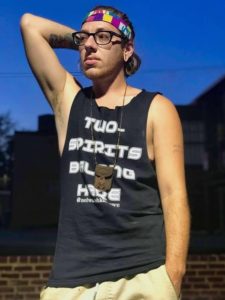
Profession: Managing director
Hometown: On Neusiok land on the East coast of North Carolina
Current home: Washington, D.C., on Piscataway land
Known for: They are the managing director of Angel Rost Artists Collective (ARAC), creating space in the Washington, D.C., arts scene for trans people of color.
What’s next: Tapepechul is focused on their pregnancy for the time being, with their wife Petrona Xemi Tapepechul. “That doesn’t mean there aren’t ARAC projects in the works,” Ahanu Tapepechul teases. “Keep a look out for the virtual staged reading of The Diaz Family.”
What makes them special: “As a theatre artist and organizer, Ahanu centers quality arts, as well as community healing,” says Xemi Tapepechul, who also serves as ARAC’s artistic director. “They have taken ARAC to a place where we were able to become eligible for the Helen Hayes Award for Emerging Theatre Company, and many trans Native and trans BIPOC artists have received healing.”
Creating inclusion: After Ahanu and Xemi began dating and Ahanu began working in theatre, Ahanu started to understand why they were struggling as a trans Native artists in Washington, D.C. “It wasn’t accessible to me or others like me,” Tapepechul says. “It still isn’t really, but I do believe we’ve made changes in the last couple of years. I want to see more, though. I want to see a day where, if ARAC didn’t exist, trans people of color would still feel wanted, not just as tokens or educators, to feel like they could be first pick because they are talented.”
Azure D. Osborne-Lee (he/they)
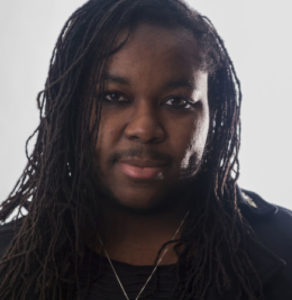
Profession: Theatremaker
Hometown: Oak Ridge, Tenn.
Current home: Brooklyn
Best known for: His full-length play Mirrors had its world premiere, albeit interrupted by the pandemic, at Next Door at New York Theatre Workshop and made the 2020 Kilroys List. His full-length play Crooked Parts is being published in the forthcoming anthology The Methuen Drama Book of Trans Plays. He is also the founder of Roots and River Productions and was in the inaugural cohort of Trans Lab.
What’s next: “I’m currently figuring out what life looks like for me through the end of this year and into 2021,” says Osborne-Lee, mentioning “a couple of creative projects in the works which I can’t announce yet. Keep an eye on my website, though!”
What makes him special: Osborne-Lee’s Crooked Parts sprung from a writing exercise assigned by playwright Aurin Squire during an open workshop at Freedom Train Productions in 2009. “Azure has a willingness to go anywhere, do anything, and say anything with his characters,” says Squire. “ It is a freedom that comes from a writer who is unafraid to live as he writes.”
Writing revolution: “My introduction to theatre was as a young actor, but I’d have to say that my first job in theatre was as an intern for the Oak Ridge Playhouse costume shop,” says Osborne-Lee. In the years since, this self-identified “fat Black nonbinary trans queer person” faced discrimination in auditions and at theatre school, which is why he turned to writing. His vision for the theatre going forward “can be summed up in one word: revolution.”
Bo Frazier (they/them)
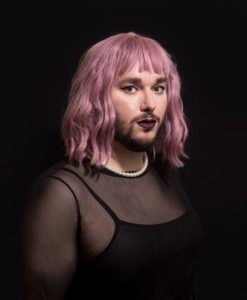
Profession: Director, producer, writer, movement director, and teaching artist
Hometown: Indianapolis
Current home: Chicago
Known for: Frazier got their start in musical theatre performing in the 2012 revival of Assassins in London. They are the co-founder of London Theatre Workshop and served as the associate director for the London premiere of bare: the rock opera. They were also the producing associate at Heartbeat Opera. Directing projects have included Hit The Wall by Ike Holter and Konstantin at Dixon Place, plus new plays by Courtney Meaker, Leigh M Marshall, and Dakota Parobek.
What’s next: Frazier is working with Isabel Dayson and Gaby Labotka to found a company in Chicago, to be called Theatre of Alexandria. “We will be dedicated to creating new work with/for/by/about BIPOC, trans, and queer folks of all abilities,” says Frazier. “We hope to eventually be in a position to develop, promote, and publish these new works by BIPOC/LGBTQIA+ playwrights, artists, and ensembles in an effort to uplift a new canon of historically erased voices.”
What makes them special: “What I find incredible about Bo’s work as a director, from my position as a dramaturg and audience member, is their ability to capture complete joy and buy-in from their casts,” says Morgan Grambo, who worked as dramaturg on Bell at the Back of Her Throat, directed by Frazier, in 2019. Erica Vannon, who serves as associate intimacy director under Frazier on Ike Holter’s Hit the Wall this past January, adds, “Bo Frazier is a highly visual and compositionally driven director interested in creating a sensorial theatrical experience. They are personally invested in highlighting queer narratives or queer perspectives in new plays, musicals, contemporary operas, or theatrical experiences.”
Beyond COVID: “This brief hibernation of our industry is the perfect moment to restructure power and rid systemic oppressions in theatres: less gatekeeping, no unpaid internships, and more leaders taking chances on emerging artists,” says Frazier. “It would be wonderful to see major theatres produce work created by director-generators, multidisciplinary artists, communities, and ensembles, in addition to playwrights. We need performances that celebrate BIPOC stories, and normalize gender variant identities, instead of sensationalizing our trauma on stage.”
Tristan B. Willis (they/them)

Profession: Writer, deviser, and game creator
Hometown: Born in Memphis, Tenn., and raised in Ennix, Texas
Current home: Washington, D.C.
Known for: Willis’s play Use All Available Doors, inspired by the D.C. Metro, had a sold-out run in the former-streetcar-station-turned-gallery Dupont Underground. They also run the theatreWashington Mentoring Program, and participated in the Orchard Project’s Liveness Lab, which explored socially distanced performance.
What’s next: It’s For You (Sept. 25-Oct. 17), a new work written and performed by Willis, is a phone call or text conversation between Willis and one audience member at a time. “It feels like someone handing you the landline phone when unexpected phone calls were still an exciting thing,” Willis says. They are also working on upcoming tabletop roleplaying games and a devised piece about rediscovering humanity when stuck within the walls of video call boxes.
What makes them special: Ezra Tozian, who has performed in multiple new works by Willis, including This Vessel Is a Fragile Thing earlier this year, says that their work “often experiments with structure and form while also promoting and highlighting non-binary characters and topics common in the trans and non-binary community. They aren’t afraid to create art that causes folks to ask, ‘But is this theatre?’ Rather, they reply, ‘Who cares?!’ and create the work anyway. I love how experimental and unafraid they can be in their ideas and approach.”
The way we create: Looking past COVID-19, Willis imagines a theatre field that embraces evolutionary and revolutionary work. “I dream of never being asked, ‘But is it theatre?’ again,” Willis says. “I dream of institutions destroying their white supremacist structures and power dynamics in favor of systems that uplift and pioritize the needs and skills of the largely underpaid, underappreciated practitioners, freelancers, and contracted artists. I imagine a field that recognizes the way we create art is even more important than the art we create.”
Cece Suazo (she/hers)

Profession: Playwright, actress, co-founder of Trans Lab
Hometown: Brooklyn
Current home: Los Angeles
Known for: Shattered Reflections aka The Deep Play at WP Theater space, the Bay area premiere of Chisa Hutchinson play Dead & Breathing, TMI & Trevor Project Life Lines: Queer Stories of Survival, You will neva enter our high holy land of blackness (HIYA) at Long Wharf Theater company, and Street Children. She’s also an Advocate magazine legacy honoree from 2018.
What’s next: The Deep Play will have a Zoom reading produced by Black Lives, Black Words International Project. She’ll also be part of TMI Project Black Trans Lives Matter storytellers workshop with Eva Tenuto and Write It Out with Donja R. Love.
What makes them special: Laura Spears Booker, who has produced Suazo twice, says, “Ms. Suazo is a Black trans woman who’s opened doors and shaped the way the American theatre gives opportunities to the TGNC community. She’s a pioneer in the business. Her contributions are amazing for fighting for equality in the TGNC theatrical community.”
Going the distance: Suazo first appeared onstage at age 14 in Titus Walker’s production of For the Love of My Black Woman, produced by Ujamaa Black Theater in New York City. “I nearly ran out of the rehearsal hall on my first day of rehearsal during my pre-transition years, because I wasn’t confident—but very aware I wanted to play one of the women’s roles,” she recalls. “Now, during my post-transition years, I’m very comfortable and confident in narratives—I present if it’s through my writing or playing great with depth. Today’s stigma plays such a huge part when it versus fact and fiction. I am who I am and will go to great lengths artistically.”
Ezra Tozian (they/them)
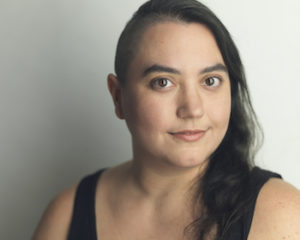
Profession: Actor
Hometown: A small town in the Blue Ridge Mountains, Va.
Current home: Washington, D.C.
Known for: Tozian performed in Illyria, or What You Will with Avant Bard, an adaptation of Shakespeare’s Twelfth Night in which Cesario is nonbinary and gets both Olivia and Orsino in the end. Tozian also performed in Enron with 4615 Theatre, with whom they are a resident artist.
What’s next: They are currently devising a project that explores themes of “regaining lost humanity.” They are also working with the D.C. theatre community and theatreWashington, which heads the Helen Hayes Awards, to create an awards ceremony and nomination process that is gender-inclusive. Tozian also became a Bat with the Flea Theater earlier this year.
What makes them special: “Ezra is a well respected nonbinary actor in the D.C. area,” says writer and deviser Britt Willis. “Their work calling out the Helen Hayes binary awards system for performers and subsequent work with the Helen Hayes adjudication committee led to the awards being changed to a gender-inclusive system.”
Inspiration beyond the stage: Tozian finds inspiration in playwrights Sarah Kane, Suzan-Lori Parks, and Matthew Minnicino. “Musically, the Kronos Quartet and Clint Mansell consistently find their way into my work (even if it only shows up as certain moods or movements), and the work of Ragnar Kjartansson (especially The Visitors) is always in the back of my mind,” they say.
Jaz Hall (they/them)

Profession: Producer-director-curator-actor-singer-dancer-visionary
Hometown: Cedar Hill, Texas by way of Bakersfield, Calif.
Current home: Ashland, Ore.
Known for: Hall is a member of the Oregon Shakespeare Festival producing team and was the assistant director for OSF’s production of Alice in Wonderland, directed by Sara Bruner. They also were a performer and the assistant director for A Letter to My Ex, an independent Black queer musical with book, lyrics, and direction by Be Steadwell, and an Allen Lee Hughes casting fellow at Arena Stage.
What’s next: Hall is cultivating an incubator for queer independent artists of color, called WOMB, the creation space. Sponsored by OSF and hosted on OSF’s digital platform O!, the artists will be engaged in conversation, have their work highlighted, and have a monthly virtual live performance or gallery space. “The fires happening locally in the Rogue Valley have devastated the community,” Hall says, “so we’re on a brief hold while we join in supporting our neighbors and colleagues.”
What makes them special: “Their leadership and community-based approach to event producing is impressive,” says OSF associate artistic director Evren Odcikin. “They are a constant champion for BIPOC queer representation. Events they’ve led include the OSF Pride Celebration, including a live digital drag show and a panel on gender in the arts. Personally, I am so thankful to them, as they remind me often to be more authentically myself as a queer leader and to continue to lead with my heart, which is something they embody every day.”
Advancing truth: Truth is what inspires Hall’s work—both the truth that arises between an artist and their art, as well as the unheard, mistaught, and fabricated truths of this country’s history. Says Hall, “In a world of ever-increasing media saturation, I’d like to aid in shifting the narrative our stages, screens, and magazines have historically upheld—that people who are ‘other’ are not the norm. That’s a lie. And I don’t feel that. The feeling, the connection is where the opportunity for compassion lies. And with compassion, hopefully a step closer to unity.”
Jennifer Fok (she/her)

Profession: Lighting designer
Hometown: Palm Springs, Calif.
Current home: New York City
Known for: Fok has worked as a lighting designer for theatre and dance around the country, including for I Am My Own Wife and Pride and Prejudice at Long Wharf Theatre; Alabaster at Know Theatre of Cincinnati; The Wolves and The Chairs at Flint Repertory Theatre; Pipeline and Girlfriend at Detroit Public Theatre; Vietgone and Really at Company One Boston; and Afro/Solo/Man with Brother(hood) Dance.
What’s next: While using their spare time to read more plays, Fok is also preparing to work on some solo music concerts coming up this fall. Fok is also returning to Theatre At Monmouth next summer, which has been an artistic home for them since 2012.
What makes them special: “Jen is one of the loveliest, kindest, and most passionate humans I have worked with,” says director Bo Frazier. “Not only is lighting design dominated by cis-het men, but white men. Jen is an Asian American trans woman, and the world deserves to know her work. She is visionary, vibrant, and hugely imaginative.”
Risk and opportunity: Fok’s first paid job was working on Colleen O’Connor’s Sexless in the Boroughs, which premiered at IRT Theatre in New York City. “My hope post-COVID is that theatre institutions take more creative risks producing BIPOC and LGBTQ+ stories,” Fok says, “especially in commercial theatre and Off-Broadway theatre. There are so many young artists who have strong and powerful voices. It’s time they be given the opportunity to take the lead.”
Joey Reyes (they/them)

Profession: Producer, facilitator, and writer
Hometown: San Bernardino County, Calif.
Current home: New Haven, Conn.
Known for: Reyes is the executive assistant and line producer at Long Wharf Theatre, where they recently produced the online event Black Trans Women at the Center, with Hope Chávez as artistic producer and Lady Dane Figueroa Edidi as the events co-producer and curator. They are also the associate producer at the Sol Project, which is dedicated to producing the work of Latinx playwrights in New York City and beyond.
What’s next: Reyes is currently working on Long Wharf’s State of the Union: An Artistic Congress, which is part of the company’s 2020-21 season. With the Sol Project, they are producing and co-hosting the company’s podcast, SolTalk, and working in partnership with Latinx Playwrights Circle and Radio Caña Negra to conduct workshops addressing anti-Blackness within the Latinx theatre community.
Creating sanctuary: Reyes is inspired by all queer, trans, and/or gender nonconforming artists of color. “The white supremist culture we exist in insists on placing us in boxes that dehumanize and oppress us and, through our art and leadership, we continue to reveal the tenacity of our spirits and encourage others to explore the fullness of their humanity,” Reyes says. “My vision for the field is that every theatre becomes a sanctuary for all people in their community, and that the most vulnerable members of our communities can share their stories authentically and be fully supported. We all deserve the opportunity and platform to share our stories with the world.”
Josephine Kearns (she/her)

Profession: Gender consultant and dramaturg
Hometown and current home: Chicago
Known for: Kearns specializes in shows with queer, transgender, and intersex themes. She works to build inclusive casting rooms, provides support for script and staging, supports marketing language and front-of-house policies, and leads education sessions for cast, crew, and staff. “Most importantly, I ensure that trans, queer, and intersex actors are fully supported in the rehearsal room, especially as they are often portraying very personal traumas,” she says. “The goal is to do the educational and emotional heavy lifting so other artists are free to focus on their specific roles.”
What’s next: Kearns is working with AEA, LMDA, Ring of Keys, and various regional theatres on gender inclusivity and consultancy.
What makes her special: Andrea Prestinario, co-founder of Ring of Keys, an organization supporting queer women+, trans, and gender nonconforming artists on and off the stage, says that as far as she knows, Kearns is the only theatre artist in the U.S. with gender consulting as her primary focus. She serves as the consultancy director for Ring of Keys and as the gender consultant for Actors’ Equity.
Less trauma, more fluff: Kearns is inspired by the opportunity to bring a broader range of stories to the stage. “Historically most theatre with marginalized characters has focused on the pain of being marginalized,” she says. “There’s so much trauma porn. But we are all so much more than that! I want to make romcoms and sci-fi fantasies and fluffy musicals about queer and trans and intersex people that portray us as people whose lives are so much more than pain and ostracization and violence. And I want Black folks, disabled folks, fat folks, and everyone else to get to tell those stories, too.”
Kathryn de la Rosa (they/them)

Profession: Dramaturg, playwright, and audio producer
Hometown: Born in Prestonsburg, Ky., raised in Paducah, Ky.
Current home: Louisville and Southern Indiana
Known for: De la Rosa was a 2019-20 dramaturgy and literary management apprentice at Actors Theatre of Louisville, where they assisted with dramaturgy for the Human Festival productions of Where the Mountain Meets the Sea by Jeff Augustin; Are You There? by Vivian Barnes, Jonathan Norton, and Gab Reisman; and FLEX by Candrice Jones.
What’s next: This December, de la Rosa is dramaturging a workshop in Working Title Playwrights’ Table Series as well as working as a dramaturg on a new musical by friend and collaborator Kaela Mei-Shing Garvin. Additionally, de la Rosa is in the early revising stages of a full-length dark comedy about three Catholic high school girls in 2012 Western Kentucky as they negotiate queerness, colonialism, matrilineal trauma, and the sacrament of confirmation. De la Rosa is also working editing tape for Playing On Air, a podcast dedicated to sharing short theatre with the public.
What makes them special: “Our industry can sometimes be so NYC-centric,” says Ring of Keys co-founder Andrea Prestinario. “Kathryn is special because they are queering the Bluegrass State with their dramaturgical work and passion for rurality.” Prestinario credits Ring of Keys, a global network of queer women and TGNC artists that fosters community throughout the country, for the opportunity to connect with de la Rosa. “This connection helps highlight that queer artists are working and thriving everywhere,” says Prestinario.
Queerness outside of cities: “I grew up loving and fighting white people in Kentucky and Indiana,” says de la Rosa, who has recently been thinking a lot about the anti-racist conversations that have and have not been happening since the summer. “I’m invested in new work that locates queerness and diasporas outside of cities, which of course includes isolation. There’s a difference between token stock image diversity and the way I grew up as the darkest person in any room until college. White people are a part of our stories as oppressors, allies, and everything in between. There are certainly horrible, reactionary white people in theatre who view racial justice as a personal threat, but I hope allies know scarcity is a myth. I couldn’t stop writing white roles if I tried.”
Kit Yan (they/them)

Profession: Writer, creator, community organizer
Hometown: Born in Enping, China and raised in Waipio, Hawaii
Current home: New York City
Known for: With Melissa Li, Yan wrote the book and lyrics for the Asian American pop-rock poetry musical Interstate, which had a run at Mixed Blood Theatre cut short due to COVID-19. Yan is a winner of the Vivace Award recognizing emerging musical theatre artists and ambitious original work. They also co-wrote two additional musicals with Li, CANCELLED and Miss Step.
What’s next: In addition to future performances of Interstate and Miss Step, Yan is working on commissions from theatres across the country and their television and film career while “mostly taking some time to think about disrupting theatre, decentering the ‘American’ theatre, and thinking about stories that live within my community.”
What makes them special: “Kit is a dear friend and prolific writer,” says frequent collaborator Li. As a “yellow American writer,” she adds, “Kit’s work is at the intersection of race and gender, constantly pushing boundaries and asking tough questions.”
The human experience: Yan hopes to see theatre post-COVID that centers the expanse of the human experience. “When I create theatre, I am in dialogue with my communities and my communities’ communities,” Yan says. “Queers, folks of color, women, disabled folks, trans people, people forming poly, single-parent, and chosen families. People are so important to me, and I want to attend theatre that reflects the beauty around me.”
Leigh Rondon-Davis (they/them)
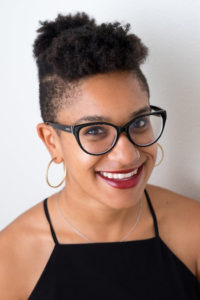
Profession: Performer, dramaturg, director, and producer
Hometown: Brooklyn, N.Y., and the Bay Area, Calif.
Current home: Oakland, Calif., on the ancestral and unceded land of the Chochenyo speaking Ohlone people
Known for: This summer, Rondon-Davis directed a virtual production of The Niceties by Eleanor Burgess for Shotgun Players. Performance credits include Crowded Fire Theater’s productions of Inked Baby by Christina Anderson and Revolt. She Said. Revolt Again. by Alice Birch.
What’s next: Rondon-Davis is one of four artists selected for Theatre Bay Area’s Director Residency and will be in residence at Shotgun Players next season. They will perform in the virtual production of The Light by Loy A. Webb for Shotgun Players this fall. Rondon-Davis is also curating a weekly show for Crowded Fire’s Twitch Stream.
What makes them special: “Leigh is both a phenomenal artist and a visionary administrator,” says director Kieran Beccia, a company member at Oakland Theater Project, where Rondon-Davis is an executive associate. “In all of their endeavors, they work to create spaces that are inclusive and productive for all involved.”
Who tells your story: Rondon-Davis says they find inspiration in community. “I am committed to telling the stories of my neighbors, family, and friends, as our identities and experiences have historically been mis- or underrepresented in American theatre,” they say. “I also receive an incredible amount of inspiration and support (and love!) from my astounding mentors and fellow artists, including Lisa Marie Rollins, Mina Morita, Julius Rea, and Michelle Talgarow!”
Marcel Mascaro (they/them)

Profession: Theatremaker, story builder, actor, director, adapter
Hometown: Born in Cuba, raised in Miami
Current home: Providence, R.I., on lands stolen from the Narraganset and Wampanoag Peoples
Known for: Mascaro is a resident artist at the Wilbury Theatre Group in Providence and a teaching artist, actor, and director for Rhode Island Latino Arts (RILA), a community organization dedicated to expanding arts outreach within the Latinx and Latin American community. They also performed alongside Kathryn Hunter in Nilo Cruz’s Sotto Voce at Asolo Rep.
What’s next: Mascaro is working on an ensemble-devised bilingual adaptation of the first volume of the Miguel de Cervantes novel Don Quixote, produced as part of Teatro en El Verano, a partnership between RILA and Trinity Rep that has offered free bilingual theatre to the Providence area. This production, directed by Mascaro with the goal of having a finished script entirely created as an ensemble, is currently planning to have performances in summer 2021.
What makes them special: “Marcel is an extraordinary powerhouse of an actor,” says director Kate Bergstrom, who has directed Mascaro in multiple productions, including the Wilbury’s staging of Red Bike by Caridad Svich. “Marcel brings dramaturgical and spiritual prowess to every room they touch, and they are a supportive and wonderful collaborator.”
Evolution of theatre: “My vision for the future of theatre post-COVID is that we do not start mourning theatre just because we cannot indulge in the ecstasy of sharing space in person,” Mascaro says, “but that we accept the call to action to allow theatre to show us just how much it can change. To me, the vision has always been that theatre is a void where all art forms can come in conjunction, in fusion, to play and convey a story, message, emotion, thought, or catharsis. The obstacle that COVID presents by forcing theatre into a virtual space only affirms the vision for theatre I have always wanted: an art form that refuses to be defined, refuses to be stuck in a binary, and refuses to be mourned.”
Randy Wong-Westbrooke (they/them)

Profession: Scenic designer
Hometown: Born and raised in the San Francisco Bay Area
Current home: Berkeley, Calif., on Chochenyo Ohlone Land
Known for: Wong-Westbrooke has designed the sets for more than a dozen world premiere productions in the Bay Area, including Beneath the Tall Tree with TheatreFIRST, Graveyard Shift and The Daughters with SF Playhouse’s Sandbox, as well as multiple productions with ACT’s MFA program including Susan Soon He Stanton’s Both Your Houses. They are drawn to working on classic or contemporary plays that are “approached with a critical and justice-oriented lens surrounding gender, race, class, sexuality, and accessibility,” says Wong-Westbrooke.
What’s next: They are taking the fall to research and apply for graduate school programs. Wong-Westbrooke hopes to find a school that will “actively support me in decolonizing and rebuilding my creative process as one that can best serve the stories and artists I am in the room with,” they say. In terms of productions in a post-COVID world, they say their “dream show has likely not been written yet.”
What makes them special: “Randy is a trans artist of color who has been steadily making a name for themselves in the SF Bay Area and beyond,” says Jon Tracy, artistic facilitator at TheatreFIRST. “Their stunning work is amplified by their stunning commitment to collaboration.”
On filling gaps: “With few trans, nonbinary mixed-race designers to come before me, inspiration has been hard to find in a mirror,” concedes Wong-Westbrooke. “As I try to bridge the gaps between the generations of my own racial and queer heritage, my inspiration comes from this new generation of millennial and Gen Z BIPOC and TGNC artists who are discovering their own truths and working hard to share their complex stories with ferocity, wholeness, and tenderness.”
Samuel Morreale (they/them)

Profession: Artistic producer, director, facilitator, dramaturg/HBIC
Hometown: Both Poughkeepsie and Hyde Park, N.Y. (it’s complicated)
Current home: The land of the Lenape in Brooklyn
Known for: Morreale serves as the conference coordinator for Theatre Communications Group and helped to produce the 2020 virtual convening “Re: Emergence.” They also served as an artistic fellow at Baltimore Center Stage, the assistant to the producing directors at NYSAF/Vassar’s Powerhouse Theater, and worked with Penumbra Theatre Company and Mixed Blood Theatre.
What’s next: Morreale is a producer on CUNY’s upcoming 2020 Prelude Festival and is facilitating Rattlestick Playwrights Theatre’s Community Conversations, a monthly series on anti-racism and anti-oppression.
What makes them special: Says Alexandra Meda, a producer with Teatro Luna/Latinx Theatre Commons, “Working with Sam is one of the few things in 2020 that motivates me to keep working toward a future for the American theatre. Sam has such a deep clarity in their values and commitment to getting folks into right relationship now, today, that it excites and provokes and pushes you forward—even if you aren’t ready to budge. More of that, please!”
Moving mountains: Morreale dreams of a theatre field that embraces “communities in all our multiplicities. A field that reminds me that I am loved, that there is joy around every corner, and that I have the capacity to move mountains with my breath. I dream of a field that invites me to interrogate my humanity without exploiting my experiences, and shows me that there are worlds upon worlds to be manifested beyond our current social realities. I dream of a field that centers healing, community, and care rather than dollar signs. I will be a part of this change and transformation in every space I have the privilege of occupying—virtually or otherwise, and I continue dedicating myself to uplifting the culture-makers who work towards creating just futures.”
Snem DeSellier (they/them)
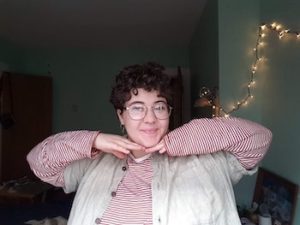
Profession: Deviser, designer/scenographer, writer/dancer, dramaturg, manager, etc./beyond
Hometown: Granby, Mass.
Current home: Minneapolis
Known for: DeSellier’s WHEN you said WHEN was presented in the final 9×22 Dance/Lab at Bryant Lake Bowl. They also curated the vibratory and light design for the “Controlled Burn: Queer Performance for a World on Fire” cabaret with 20% Theatre Company, and served as lighting designer for Hit The Wall at The Southern Theatre. They are also known for their performances with the Lightning Rod cohort, Consensual Sensual: The Consent Play and Careful, Now with Hampshire College. DeSellier just completed a year-long artistic and administrative apprenticeship with the Playwrights’ Center, for which they contributed stage management and design support for the 2019-20 season.
What’s next: DeSellier is working on an installation concept with their documentarian partner, fionn warren. The project is about “mapping the unmappable, thinking about pluralities and all the ways we store and think about perspective and bias and survivor technologies,” explains DeSellier.
What makes them special: “Snem is collaborative by nature and a dream to work with as a designer,” says Claire Avitabile, 20% Theatre Company’s executive director and founder. “They are kind and hard-working, and put so much heart into every project.”
Inspiration everywhere: “I’m excited about the complicated and the long-winded and the webbed; the performance that is invitation, that is response and more questions and unanswered all at once,” says DeSellier. “Spells that help us navigate the sticky ways we are always asked to choose and to maneuver. I’m constantly finding teaching and inspiration in old shores, in root systems and carpentry, in organic movement impulse and conversation, in physics textbooks and social patterning. A lot of my work starts in the reaction, or the parsing. It’s a multi-pronged way to take the time it takes to separate out what is demanding.”
Tẹmídayọ Amay (they/them)

Profession: Actor, singer, director, writer, and creative producer
Hometown: Washington, D.C. (their “people come from the Yoruba lands of Lagos and Ibadan, Nigeria”)
Current home: Washington, D.C., and New York City
Known for: Amay won a Helen Hayes Award for their performance as Gifty in Round House Theatre’s production of School Girls: or, the African Mean Girls Play. Their monologue as James Baldwin has garnered thousands of views on YouTube. “I often look to Baldwin’s words in this speech for inspiration, especially given the world we live in today,” says Amay.
What’s next: Amay is penning a TV script about their Black, queer, and gender-expansive coming out journey. It is a “love letter to queer, Black, specifically first-generation African people everywhere.”
What makes them special: “Amay is not only a phenomenal actor, but a deeply intentional cultural worker and advocate,” says Lady Dane Figueroa Edidi, who was part of a Gender-Diverse Black Theatre Leadership Roundtable with Amay this past July. “They have been integral to the gender-expansive work happening in D.C. theatre.”
Fast forward: Amay is excited to see what the future holds beyond the pandemic. “I have witnessed myself and my friends—my ride-or-dies—realize that the glory is in us already to make our theatre, TV, and film dreams come true,” says Amay. “As American theatre continues to shift into the realm of TV and film, I know that I have everything I need to make it happen, and that those who will support my dreams come into my life every day. I am ready to see my dreams come true: here, now, and beyond.”
Twi McCallum (she/they/he)

Profession: Sound designer
Hometown: Born in Charlotte, N.C., raised in Baltimore
Current home: New York City
Known for: This past spring, McCallum served as sound designer for Frankenstein: A Ghost Story at Kansas City Repertory. She also contributed dialogue editing, music composition, sound effects creation, and original foley for the horror fiction podcast “Black Women Are Scary.” McCallum just completed a sound internship at Alchemy Foley Studio.
What’s next: McCallum will be the sound designer for National Black Theatre’s production of Retreat by Tracey Conyer Lee, which will stream as a radio play this fall. “[NBT] is a company I’ve dreamed of working for, so I feel like I’ve accomplished a milestone,” says McCallum. “It is written by a magnificent Black woman named Tracey Lee Conyer, directed by a brilliant young man that I marvel at named Zhailon Levingston, with music composed by a lovely bright spirit named Nehemiah Luckett.”
What makes her special: “She is a beautiful example of a young artist who is also hands-on in real world activism,” says director Michael Rock. “I don’t understand how she manages her robust schedule.” citing her work with the organizations SoundGirls, Theatrical Sound Designers & Composers Association, Post New York Alliance, Wingspace, and a Facebook page called Black Stage Designers, as well as studying in Yale School of Drama’s one-year sound program. As if that’s not enough, he notes, McCalllum has spent her summer “volunteering to deliver meals to sick/elderly people, speaking on panels regarding racial equity in theatre, and fundraising for grassroots organizations to help with food access and hygiene products in her hometown of Baltimore.”
The soundboard switch: McCallum moved to New York City in 2018 and was urged to try their hand at costume design, a discipline they “hated and had no talent in.” Their first job in the city was working as a technical apprentice at the New York Live Arts dance company. “I learned a bit of everything from lighting, props, carpentry, and stage management, but my focus was audio and working as A1 for the major productions,” says McCallum. “Simultaneously, I became a stagehand at Manhattan School of Music, which exposed me to the protocol of working in a union house as well as the beauty of orchestral music operations.”

